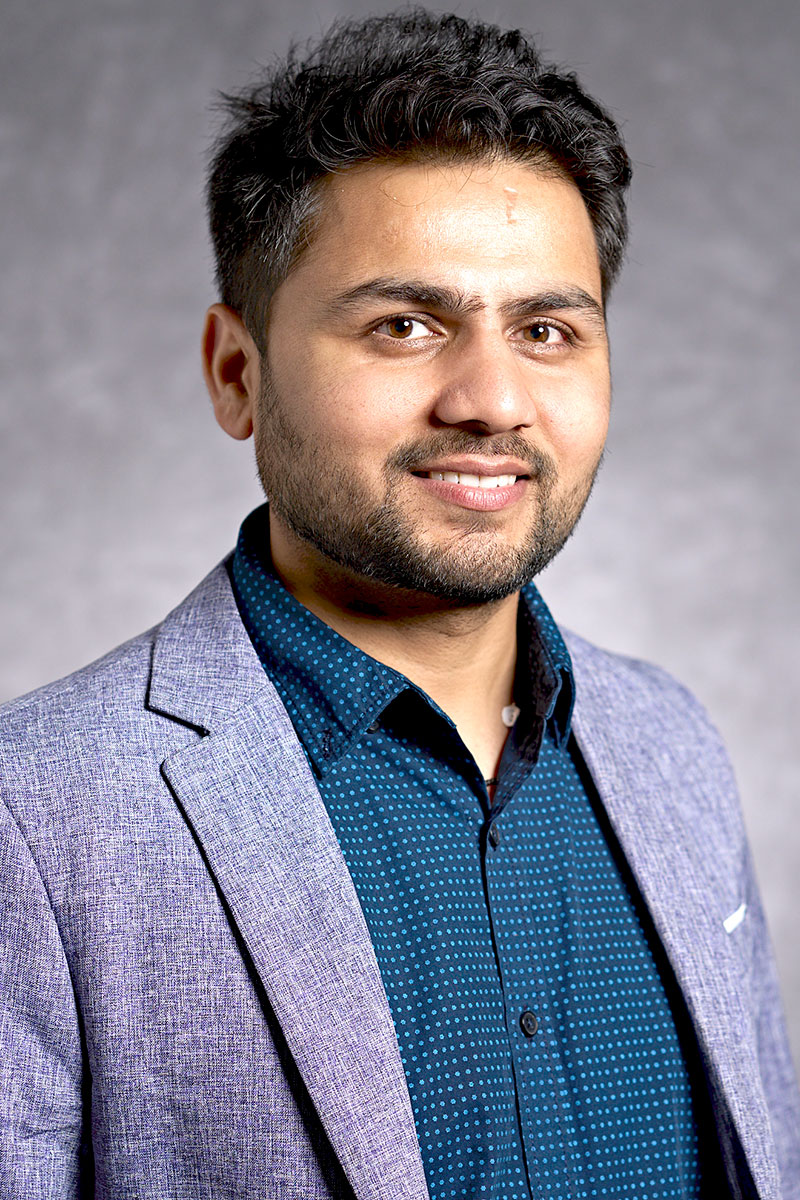by Satina Richardson
Safal Khanal, OD, PhD, FAAO, UAB School of Optometry assistant professor, was awarded the Irvin M. and Beatrice Borish Award from the American Academy of Optometry (AAO). This award recognizes an outstanding young scientist or clinician scientist who shows exceptional promise in conducting independent optometric research directly related to etiology, prevention, detection, diagnosis or management of clinical eye disorders.
“It is a distinct honor to receive the Irvin M. and Beatrice Borish Award and join the ranks of esteemed leaders in the field. This recognition is not just a testament to my individual efforts but also a reflection of the collective support of my mentors, colleagues, students, family, and friends.” Khanal said. “Winning this award will likely open new avenues for academic collaborations and further success.”
Khanal’s research focuses on myopia, which is a global epidemic and a significant threat to public health. Over two billion people worldwide have myopia today, and this number continues to rise at a rapid rate.
“The current focus of my laboratory is on understanding how the eye regulates its growth and refractive state and what causes this regulatory mechanism to malfunction leading to excessive elongation of eyeball and development of refractive errors like myopia,” he said.
Studies in his lab are currently investigating optical, environmental, and neural mechanisms of eye growth control and myopia development through a combination of imaging, electrophysiology, and molecular techniques in animal models (tree shrews) and humans.
“Many children today are developing myopia at an early age and progressing rapidly throughout adolescence and into early adulthood. These individuals carry the lifelong risk of vision loss from myopia-related complications. Unfortunately, traditional glasses, contact lenses, and refractive surgeries do not reduce these risks because they do nothing to slow eye growth,” Khanal said. Soon, his lab will begin two new randomized clinical trials to investigate the efficacy of newly developed myopia control interventions in children. The overall goal is to use learnings from these trials to establish treatment strategies that can effectively control the rapidly growing myopia problem and mitigate its global impact.
In addition to involvement with the AAO, Khanal is active in several national and international professional organizations. Within these groups, he holds leadership positions influencing eye and vision research policies. This includes serving on the Association for Research in Vision and Ophthalmology (ARVO) and AAO scientific committees, ARVO ethics and regulations in human research committee, the AAO Fellows Doing Research special interest group and the editorial boards of Scientific Reports and Frontiers in Neuroscience – Visual Neuroscience section. Khanal is a fellow of the AAO and a recipient of the AAO’s Career Development award as well as the National Alliance for Eye and Vision Research’s Emerging Vision Scientist award.
“My career goal is to dedicate time and efforts toward conducting innovative, high-impact research and educating and mentoring the next generation of clinicians and scientists with the hope of finding a cure for myopia one day,” Khanal said. “In science, it is rare to have an opportunity of a discovery or innovation that can make an immediate impact on the lives of billions of people. Knowing that this opportunity exists excites me greatly and pushes me every day.”
“It would give me immense joy and satisfaction if insights from my research can contribute to new treatments and understanding of myopia. This will significantly improve public eye health and massively benefit half of the global population that is estimated to suffer from myopia by 2050.”
